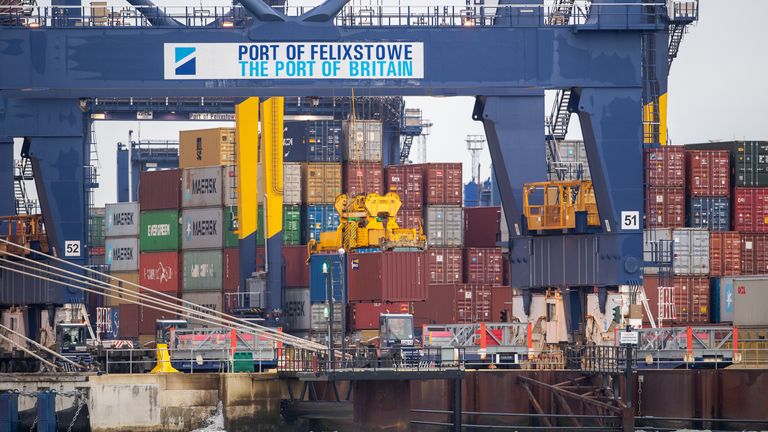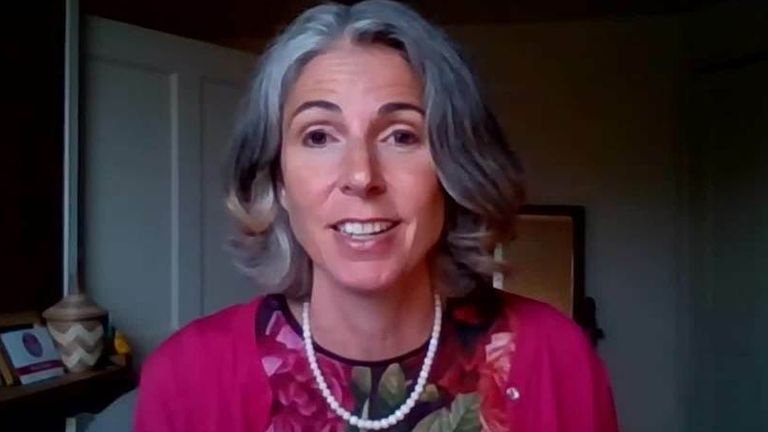COVID-19: Rising inflation pushes monthly cost of servicing government debt to record £8.7bn
Britain spent a record £8.7bn in interest payments on central government debt last month, official figures show.
The figure was £6bn higher than at the same time last year largely because nearly half a trillion pounds worth of government bonds are linked to inflation, which has been rising.
Borrowing overall – the shortfall between government spending and the revenues such as tax – was £22.8bn last month, according to the Office for National Statistics (ONS).
That was £5.5bn lower than in the same month last year but still the second highest level for June on record – and slightly higher than expected – with the impact of the pandemic continuing to squeeze public finances.
Borrowing has been falling compared to last year thanks to the rebound in economic growth bringing higher tax receipts and lower spending on support schemes such as furlough.
But the growing cost of servicing debt is partially offsetting this.
The June figures showed debt climbed to £2.2trn, or 99.7% of GDP – the highest ratio since 1961, the ONS said.
Interest payments on that debt were the highest since records began in 1997.
Chancellor Rishi Sunak said: “I’m proud of the unprecedented package of support we put in place to protect jobs and help thousands of businesses survive the pandemic, and that we are continuing to support those who need it.
“However, it’s also right that we ensure debt remains under control in the medium term, and that’s why I made some tough choices at the last Budget to put the public finances on a sustainable path.”
The ONS figures showed that the higher interest payment for last month meant overall central government spending was £2.5bn higher than the same time last year.
That was despite the fact that the government spent £5.9bn less on the furlough scheme this time compared to 2020.
Meanwhile, the amount of money the Treasury received was higher, boosted by £2.3bn more in VAT and £600m in fuel duty as the economy reopened.
For April-June, the first three months of the current financial year, borrowing totalled £69.5bn, about two-fifths lower than in the same period of 2020 – and analysts said it was on course to undershoot the official £234bn target for the full year pencilled in by the Office for Budget Responsibility (OBR).
The ONS also revised down the annual borrowing figure for the year to the end of March by £1.5bn to £297.7bn – though that was still the highest it has been as as percentage of GDP since the end of the Second World War.
Michal Stelmach, senior economist at KPMG UK, said: “The spike in debt interest payments won’t derail the deficit reduction but risks remain.
“We still expect borrowing to undershoot the OBR’s latest forecast for this year.
“But we are not out of the woods yet, with the recent surge in COVID-19 cases putting some parts of the economy at risk of further restrictions later in the year and the uncertainty around the impact of phasing out the furlough scheme on unemployment.”
Source: Read Full Article





